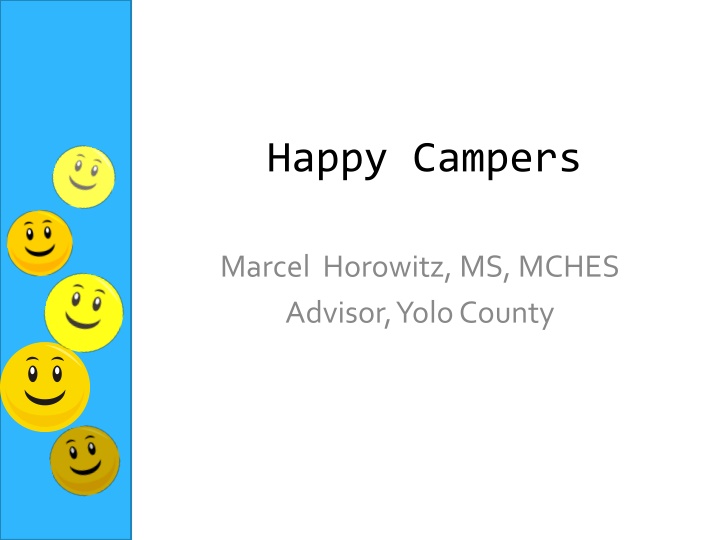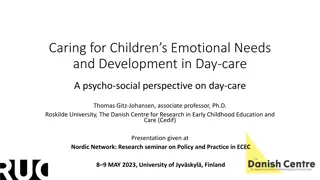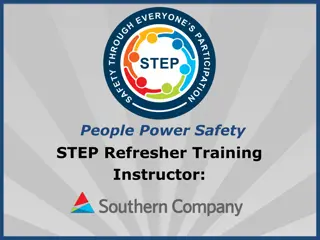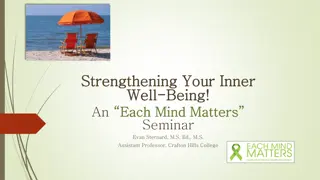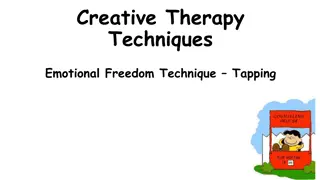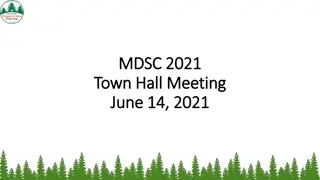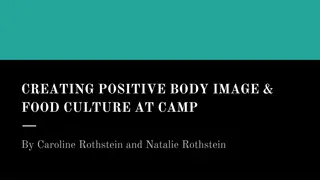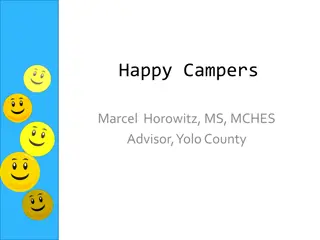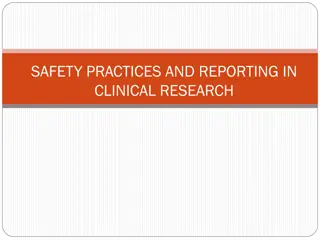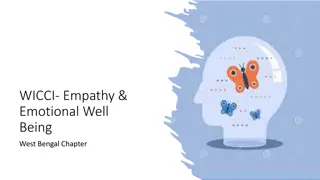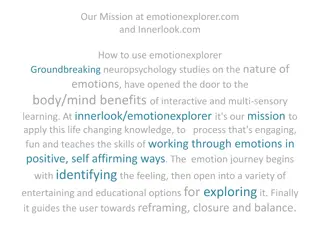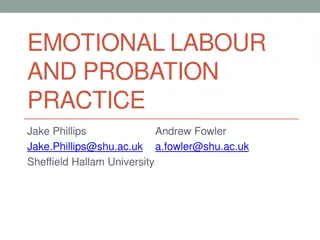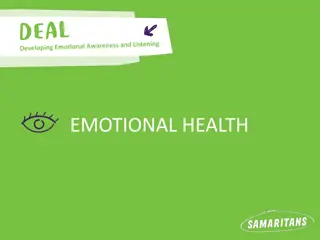Promoting Emotional Safety and Well-being at Happy Campers
Happy Campers, led by Marcel Horowitz, MS, MCHES, focuses on creating a positive camp experience for children in Yolo County. The camp emphasizes the value of finding partners, the importance of emotional safety, and the impact of feeling good on campers' experiences. Addressing factors like sleep, hydration, and social interactions, the camp aims to prioritize well-being and mental health. Camp plans can be disrupted by grumpy campers, prompting a focus on support, preparation, and balance between structure and content. A detailed consideration of factors affecting campers' experiences, such as sleep deprivation and scheduling issues, is highlighted to ensure a positive and enriching camp environment.
Download Presentation

Please find below an Image/Link to download the presentation.
The content on the website is provided AS IS for your information and personal use only. It may not be sold, licensed, or shared on other websites without obtaining consent from the author.If you encounter any issues during the download, it is possible that the publisher has removed the file from their server.
You are allowed to download the files provided on this website for personal or commercial use, subject to the condition that they are used lawfully. All files are the property of their respective owners.
The content on the website is provided AS IS for your information and personal use only. It may not be sold, licensed, or shared on other websites without obtaining consent from the author.
E N D
Presentation Transcript
Happy Campers Marcel Horowitz, MS, MCHES Advisor, Yolo County
The most valuable thing children get from camp is Find a partner. Discuss your answer to the question above. Digging past why .
The best laid plans are ruined by Grumpy campers. Emotional safety Feeling good Grumpy teens. Support and preparation Feeling good Focusing on content instead of structure. Planning too much. Planning too little. Lack of balance between new and traditions.
Emotional safety makes happy campers! Cabin Behavior management agreements No inappropriate content No religion No forced individual attention No embarrassing traditions No teasing or put downs No forced co- ed touching A sense of belonging
Feeling good makes happy campers! Hydrated & nourished Nature Social groups Enough sleep Illness/ Injury prevention Movement
9+ hours of sleep! What prevents this from happening? Sleep not prioritized, this leads to: Bad moods Lack of recall/ memory/ learning Lack of problem solving Conflicts & discipline problems Overeating Stress Poor emotion regulation = homesickness Decreased immunity/ increased illnesses Lack of interaction by teens
9+ hours of sleep! Hyped up campers No caffeine Activities at the wrong times Decompression /reflection time for cabin group Decompression/ reflection time for the camper
9+ hours of sleep! Too much in the schedule Forgetting nighttime & morning routines Too many must have traditions/activities Teen meetings late at night Lack of follow through on curfew No supervision at bedtime
Structure and schedule In groups of 4, write up a daily schedule that allows time for: morning routine shower time 3 meals, 2 snacks morning physical activity quiet rest time in the afternoon. List ideas. c0unselor meeting while campers are chaperoned and out of cabin . Last activity of the night = calm. List ideas. bedtime routine (incl time for meds from nurse) Cabin decompression/ reflection time Individual decompression/ reflection time 9+ hours of sleep, with consistent bedtime
Supported teens make happy campers! Behavior management training Back-up plans Realistic expectations Accurate and supportive feedback Daily debriefs Enough sleep
